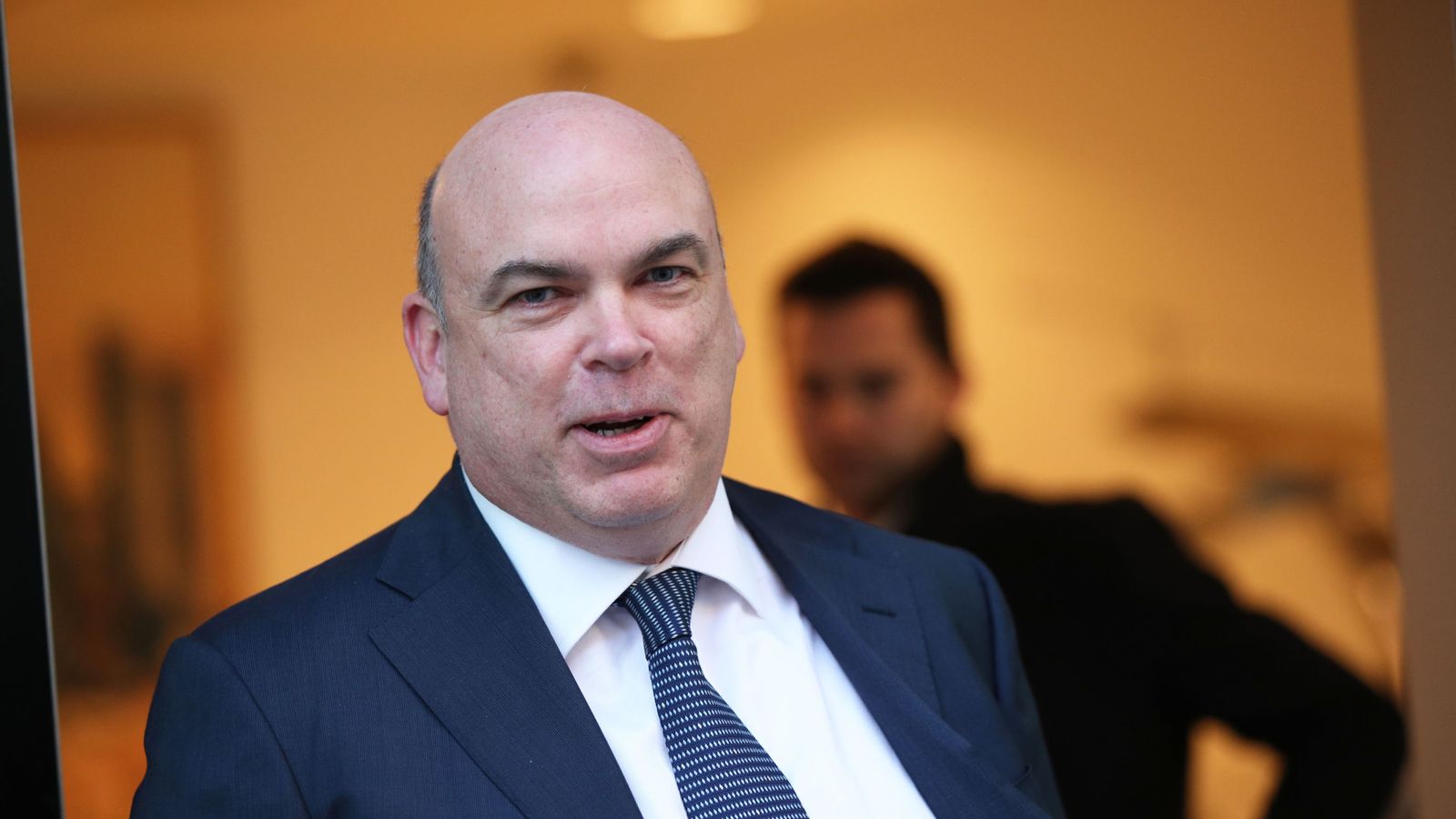
The Wall Street bank Goldman Sachs is to snub the £2bn flotation of one of Britain’s fastest-growing technology companies amid US prosecutors’ efforts to extradite its biggest investor.
Sky News has learnt that Goldman has declined to seek a role on the initial public offering (IPO) of Darktrace, a leading player in the provision of artificial intelligence (AI) cybersecurity services.
Banking sources said that executives at Goldman had raised concerns about the ongoing legal ramifications of billionaire Mike Lynch’s $11bn sale of the software company Autonomy to Hewlett Packard (HP) in 2011.
Mr Lynch, one of the most prominent figures in Britain’s technology industry, faces an extradition hearing early next year following the decision by US authorities to charge him with 17 counts of securities and wire fraud.
The businessman submitted himself for arrest in February and was granted bail in return for £10m security.
Mr Lynch has always denied the charges against him.
His venture capital firm, Invoke Capital, became the first investor in Darktrace after it was founded in 2013, since when it has grown rapidly, boasting more than $200m in annual revenue.
Insiders said this weekend that investment banks had been asked to pitch next week for the mandate to advise on Darktrace’s prospective London float, which is expected to seek hundreds of millions of pounds from the sale of new and existing shares.
People close to the company said that eight leading investment banks, thought to include Credit Suisse, Morgan Stanley and UBS, submitted credentials to Darktrace ahead of a deadline this week.
One bank participating in the process is understood to have told the company that “due diligence requirements would not be an impediment to the process, given our strong working knowledge of the company”.
Compliance officials at some of the eight banks are, however, understood to retain reservations about participating in the IPO.
Among the questions they are said to have raised are whether underwriting the float could constitute a potential breach of Britain’s Proceeds of Crime Act, as well as the continuing close relationship between Darktrace and Invoke.
Although Mr Lynch stepped down from the Darktrace board in 2018, Invoke remains the company’s largest shareholder.
The entrepreneur has also relinquished some of his other board roles but remains involved with start-ups such as Luminance, a law-focused AI company.
Sky News revealed earlier in the summer that the private equity giant KKR had increased its stake in Darktrace as part of a reorganisation of the company’s shareholder structure.
Bankers have also questioned their ability to participate in the IPO process because Sushovan Hussain, the former Autonomy finance chief and a Darktrace shareholder, was sentenced to five years in a US prison for fraud in May 2019.
Goldman’s decision not to seek a role on Darktrace’s float underlines the sensitivity within bulge-bracket banks about the issues raised by its plan to go public.
The London Stock Exchange has been keen to persuade Darktrace to list in the UK against stiff competition from American exchanges.
Cybersecurity companies which have floated in the US, including Crowdstrike, have seen their shares surge immediately after listing, suggesting that Darktrace might quickly be valued at well over £2bn.
Last week saw the London’s biggest IPO for several years with the listing of The Hut Group, the digital consumer brands and logistics group.
Darktrace had been considering appointing an independent investment banking adviser to coordinate its IPO process but has now decided against doing so, according to City sources.
The company recently named Poppy Gustafsson – herself a former Autonomy colleague of Mr Lynch – as its sole chief executive, ending a joint leadership structure with co-founder Nicole Eagan.
More than $100m of new capital was recently injected into Darktrace by existing investors said to include KKR and Summit Partners, a US-based private equity firm.
Headquartered in Cambridge, Darktrace supplies artificial intelligence-based cybersecurity software to corporate customers, helping them to detect abnormal behaviour on their networks.
It recently said it had passed $1bn in “cumulative bookings”, suggesting that its order-book has been substantially boosted by the coronavirus-inspired switch to remote working for millions of employees of multinational companies.
Growing demand for its products has underpinned some of its investors’ appetite to buy more Darktrace stock, with recent cyberattacks on companies such as easyJet and Honda again reinforcing the extent to which the security of multinationals’ networks and data is now a fixture on boardroom agendas.
Darktrace now employs more than 1200 people, and operates from 44 offices, with dual headquarters in Cambridge and San Francisco.
Its blue-chip corporate customers have included AIG, BT Group, Jimmy Choo, the Science Museum Group and William Hill.
In February, Darktrace appointed Cathy Graham, who has been involved in a series of technology company IPOs, as its chief financial officer.
KKR and Summit invested in the company as part of previous funding rounds in 2015 and 2016.
It also raised money in a Series-E round in 2018, when it said Vitruvian Partners, another private equity firm, had come on board as a shareholder.
Poppy Gustafsson, Darktrace chief executive, told The Sunday Times in a recent interview that business had boomed during the coronavirus crisis.
“A lot of the attacks are leveraging the pandemic,” she said.
“People need access to information very quickly, so are susceptible to clicking on links that turn out to be malware.”
Darktrace and Goldman declined to comment on Saturday.

